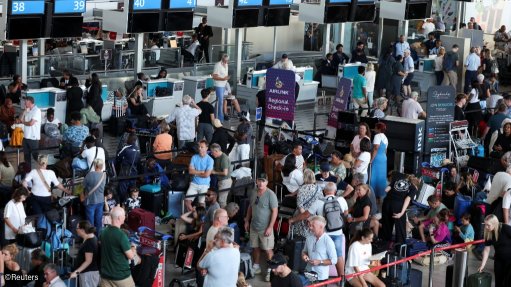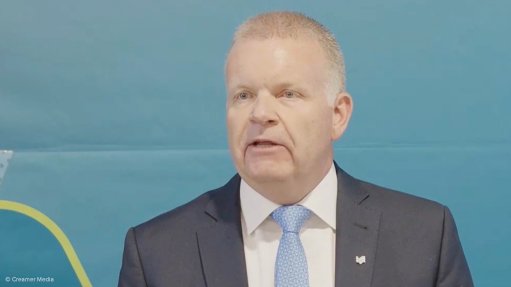Rail protocol ratification approved


VIVIEN CHAPLIN The LRP aims to make it easier and cheaper for the private sector to finance railway rolling stock
The South African Cabinet formally approved the submission of the Luxembourg Rail Protocol to the Cape Town Convention (LRP) to Parliament for ratification, in June 2023. Formal ratification is expected later this year.
The LRP aims to “foster economic growth by enhancing private-sector financing in the rail industry” and the progression of the protocol is “an indication of how serious the country is about rail reform”, says Cabinet.
South Africa’s economic growth has been mired by various infrastructural issues including failing rail, road and port systems, says law firm Cliffe Dekker Hofmeyr corporate and commercial practice director and mining and minerals sector head Vivien Chaplin.
The loss of freight volumes and the reliance on trucks as the primary mode of transport have worsened the situation, leading to public safety hazards and a threat to key exports.
Coupled with the challenges such as job cuts, the loss of opportunities and loss of capital investment, the logistical crisis represents one of the country’s most immediate concerns, says Chaplin.
Aligned with the 2022 White Paper on Rail Policy, which makes space for private-sector investment, and given that the National Logistics Crisis Committee has proposed greater private-sector participation in addressing these issues, the ratification of the LRP may be significant in providing the spark needed to reignite the engines of the struggling sector, she elaborates.
The LRP and its Implications
Formally known as the Luxembourg Rail Protocol to the Cape Town Convention on International Interests in Mobile Equipment on Matters Specific to Railway Rolling Stock, the LRP is a global treaty, adopted in 2007.
The main objective of the LRP is to make it easier and cheaper for the private-sector to finance railway rolling stock – from high-speed trains to trams – without State guarantees, thus enabling governments to focus their resources on infrastructure.
Once in force, the LRP will result in the creation of an international legal framework for the recognition and enforcement of the security interests of private-sector investors, where each are secured by railway rolling stock.
The LRP will also establish a unique rail vehicle identification system (URVIS) which will make it easier to track the location of rolling stock in real time.
Further, it will introduce an international public registry situated in Luxembourg accessible online at all times. Private-sector investors can then register their security interests in the financed equipment and check for potential rival claims.
This will make it possible for all interested parties to easily learn of a creditor’s security interest in an item of rolling stock, and for that creditor to be able to enforce its security in cases of debtor default or insolvency, Chaplin explains.
Public-Private Partnerships as the Way Forward
Chaplin says that the majority of the advantages to be gained from the ratification of the LRP relate to the elimination of risk for private-sector investors in rail equipment.
Primarily, the LRP will lower barriers to entry into the industry for private-sector operators and reduce the dependence of State and private operators on State funding.
Further, the LRP will ensure that the security interests of private-sector investors will be safeguarded through the establishment of the URVIS. It will also facilitate the short-term operating leases of rolling stock for railway operators from private-sector investors as well as between operators, ensuring more efficient use of rolling stock.
Ultimately, these developments have the ability to attract capital investment, which will, in turn, promote the expansion of rolling stock manufacturing facilities, says Chaplin.
To date, four States have ratified the LRP (as well as the European Union in regard to its competences), thereby satisfying the conditions for the Protocol’s entry into force.
With the onboarding of Spain as an official Member State in early 2023, the treaty entered its next phase, which will involve the opening of the International Rail Registry in Luxembourg City.
Chaplin notes that, while this marks a significant stride forward in terms of addressing the country’s logistical setbacks, significant policy shifts will be required to ensure a smooth adoption.
Resistance from unions may be on the horizon, as well as significant complexities in terms of the legalities, operational policies and risk allocation.
Companies wanting to invest in this sector, now have a limited window of opportunity to prepare for the implications of this regulatory shift to realise its full potential, says Chaplin.
Funding remains a chief concern, particularly in light of Basel IV – the latest set of banking regulations governing the calculation of risk-weighted assets.
“These companies will therefore require legal counsel with a solid understanding of the industry and South Africa's procurement and legal environment, to navigate the interface between public and private-sector parties,” Chaplin concludes.
Article Enquiry
Email Article
Save Article
Feedback
To advertise email advertising@creamermedia.co.za or click here
Press Office
Announcements
What's On
Subscribe to improve your user experience...
Option 1 (equivalent of R125 a month):
Receive a weekly copy of Creamer Media's Engineering News & Mining Weekly magazine
(print copy for those in South Africa and e-magazine for those outside of South Africa)
Receive daily email newsletters
Access to full search results
Access archive of magazine back copies
Access to Projects in Progress
Access to ONE Research Report of your choice in PDF format
Option 2 (equivalent of R375 a month):
All benefits from Option 1
PLUS
Access to Creamer Media's Research Channel Africa for ALL Research Reports, in PDF format, on various industrial and mining sectors
including Electricity; Water; Energy Transition; Hydrogen; Roads, Rail and Ports; Coal; Gold; Platinum; Battery Metals; etc.
Already a subscriber?
Forgotten your password?
Receive weekly copy of Creamer Media's Engineering News & Mining Weekly magazine (print copy for those in South Africa and e-magazine for those outside of South Africa)
➕
Recieve daily email newsletters
➕
Access to full search results
➕
Access archive of magazine back copies
➕
Access to Projects in Progress
➕
Access to ONE Research Report of your choice in PDF format
RESEARCH CHANNEL AFRICA
R4500 (equivalent of R375 a month)
SUBSCRIBEAll benefits from Option 1
➕
Access to Creamer Media's Research Channel Africa for ALL Research Reports on various industrial and mining sectors, in PDF format, including on:
Electricity
➕
Water
➕
Energy Transition
➕
Hydrogen
➕
Roads, Rail and Ports
➕
Coal
➕
Gold
➕
Platinum
➕
Battery Metals
➕
etc.
Receive all benefits from Option 1 or Option 2 delivered to numerous people at your company
➕
Multiple User names and Passwords for simultaneous log-ins
➕
Intranet integration access to all in your organisation



















